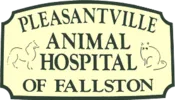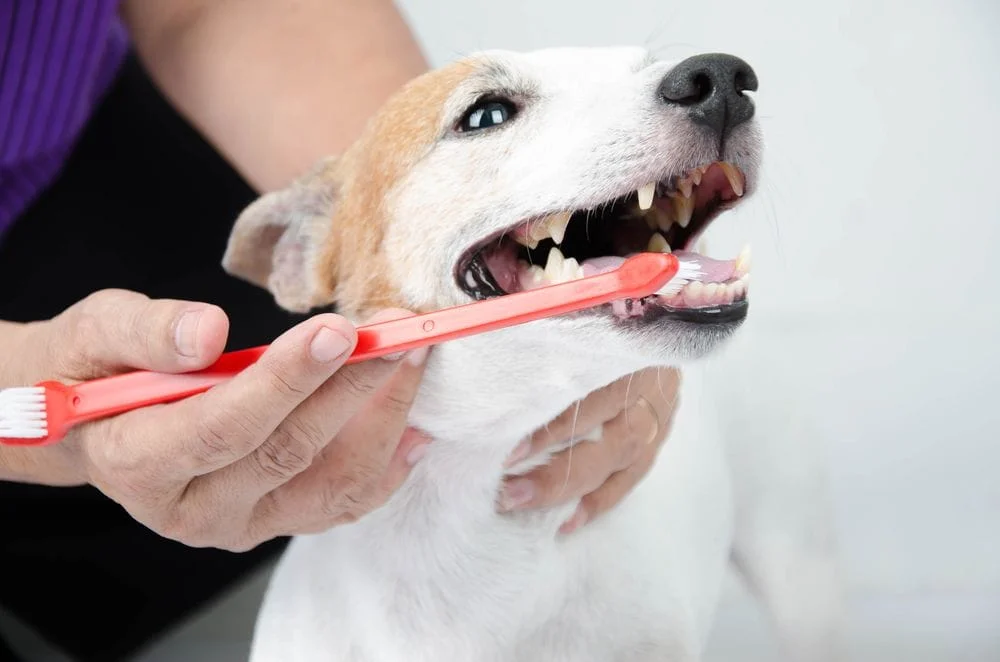Your Fallston Vet Provides Pet Dental Services in Fallston, MD
Pets can suffer from gum disease and periodontitis just like humans do. In fact, dental disease is the #1 condition affecting household pets, even though it is a preventable disease. That's why your veterinarian recommends pet owners bring their pets in for regular dental checkups and cleanings to keep a pet's teeth and gums as healthy as possible.
The Importance of Pet Dental Care
Dogs and cats depend on their teeth to chew food before swallowing can experience malnutrition and disorders attributed to vitamin and mineral deficiencies if they cannot chew properly. When the intestines cannot absorb nutrients from improperly chewed food, pets may develop skin, vision, hearing and systemic problems resulting from a lack of nutrition.
Without you, your pet cannot take care of their own teeth such as with daily brushing. Due to this lack of attention, plaque, tartar and bacterial infections are allowed to build up on their teeth, which forms a cement-like structure. This infection is a serious health hazard, affecting the gums and bone surrounding the teeth, causing destruction of these tissues, the tooth, and the bone surrounding it, and can eventually lead to tooth and bone loss.
Dental disease doesn’t just stop at the mouth, however. Bacteria from diseased mouths are constantly entering the bloodstream, as the gums are a very vascular area. Once in the bloodstream, bacteria travel to any part of your pet’s body, especially the pet’s major organs. The lungs, heart, liver, kidneys, and even the brain are very susceptible to bacterial infection. Damage to any of these organs can shorten the lives of both dogs and cats.
It cannot be emphasized enough that dental disease in your pet is essentially a 24/7 bacterial infection of the gums and mouth, with toxins causing local bone and gum damage and eventual tooth loss, possible fractures of the bone, along with possible infection of other parts of the body. It is estimated that chronic dental disease throughout their life can lessen your pet’s life by up to 3 or more years.
How to Prevent Dental Disease
Healthy gums and teeth are extremely important for the well-being of both dogs and cats, and there are many things you can do to ensure this. You can keep your pet’s mouth clean and healthy with dental brushing for about 20 seconds a day. We carry a variety of pet tooth brush kits that are easy to use and made especially for dogs and cats, and each kit comes with flavored toothpastes. It is important to use toothpaste and a toothbrush that is specifically made for dogs and cats. The ingredients found in human toothpaste can be harmful for dogs and cats since they cannot spit when brushing is finished. There is also a tooth sealant that can be applied to clean teeth to retard tartar formation and bacterial growth.
Sometimes no matter how hard you try, your pet will not let you brush their teeth. However, even just getting the toothpaste into your dog or cat’s mouth is beneficial, as the toothpastes we carry contain enzymes designed for breaking down plaque. We also carry bones and treats that are treated with special enzymes to help prevent tartar and infection from building up on teeth. These treats are very tasty and most pets look forward to getting their daily dental chew. We also carry a mouth rinse that can be used for both dogs and cats. This rinse is squirted along your pet’s teeth and spreads around the teeth to help prevent tartar build up. Our staff is well educated on the dental care products we offer, and can help you determine which products will work best for your pet and your lifestyle. Please contact our office if you have any further questions about dental care or any other questions regarding your pet’s health. Our staff is available to you and your family to provide information on all aspects of your pet’s life.
How do I Know if My Pet has Dental Disease?
The most common sign of dental disease in cats and dogs is halitosis, or bad breath. Pets may also drool, whimper, paw at their mouth, and some pets may have such severe dental disease that it affects their ability to eat, and some pets may not want to eat at all if it is painful enough. As veterinarians, checking your pet’s teeth is one of the many aspects we examine during a check-up. You are also welcome to schedule an appointment with us at any time if you are concerned about dental disease and would like us to check your pet’s teeth. After a thorough exam, we may recommend that your pet have a professional dental cleaning, which we can do right here at Pleasantville Animal Hospital of Fallston.
Pets Undergoing Dental Procedures
What is involved in a veterinary dental procedure?
We will place an IV catheter and induce anesthesia in your pet. Fluids will be provided to your pet throughout the procedure to maintain blood pressure, perfuse the internal organs, and provide hydration. We will examine each tooth in your pet’s mouth and determine whether or not it needs to be extracted. Some pets have such diseased teeth that they simply fall out with little manipulation. After examining each tooth and taking out whichever teeth are too diseased to stay in the mouth, we will crack and clean off the dental calculus that has formed on the teeth. Calculus is almost like cement on the teeth and cannot be removed by brushing or scraping. We will also use an ultrasonic scaler to remove smaller bits of calculus and any plaque or stains that may be on your pet’s teeth, and then polish them. Most owners notice an immediate difference in not only the appearance of the teeth, but a major improvement in their pet’s breath!
What should I expect on surgery day?
We will ask that your pet be fasted the day of (no breakfast). They can have food up until 11pm the night before, and can have free access to water. Your pet will be ready to go home either late morning or early afternoon, but we can hold your pet until the end of the day if needed. Your pet may still be a little sleepy after going home, but should return to normal activity the next day.
Contact Us Today
Schedule an appointment for a pet dental examination today by calling (410) 877-3838.


